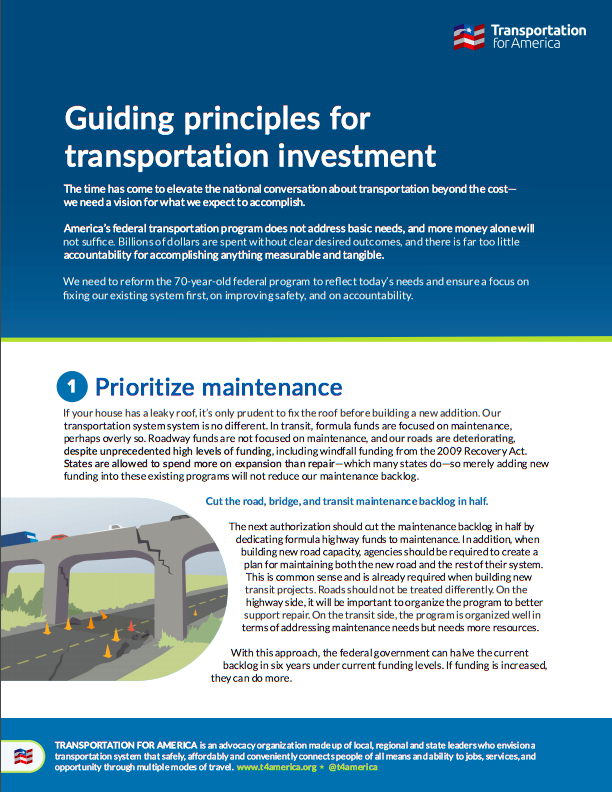Transit is a public good—let’s treat it that way
Across the country, transit agencies are urging people to stay home to protect public health. The steep decline in ridership over the past week due to the COVID-19 outbreak has caused transit to enter an unprecedented fiscal crisis. But Congress refuses to recognize how urgently transit needs support.
Transit agencies sound the alarm: COVID-19 is a long-term threat to service
The COVID-19 pandemic is decimating transit agencies’ budgets. Without emergency assistance from Congress, public transportation won’t be there when this crisis subsides—yet the Senate Republicans’ proposed stimulus bill doesn’t give transit a cent. Join transit agencies across the country and tell Congress that transit needs emergency funding.
Release: Over 200 transit agencies, cities, and organizations urge Congress to pass emergency funding for transit
Over 220 elected officials, transit agencies, and organizations urge Congress to provide $13 billion in emergency funding for public transportation to stave off service cuts and job layoffs, and preserve service for the future
What would a Green New Deal for transportation look like?
Current federal transportation policy is diametrically opposed to climate action. The Green New Deal framework released a year ago mostly left that unchanged. But a new report T4America contributed to fills in those gaps and gives transportation policy the same visionary makeover to show what we could achieve if our transportation and climate goals were aligned.
Voters want and need more transportation options
New polling conducted by YouGov on behalf of T4America and our partners finds that Americans support expanding public transit by a 77-15 margin—even as many transit agencies face a growing generational funding crisis brought on by COVID-19.
Coronavirus will have huge impacts on transit systems—here’s how Congress should help
Congress and the president are considering ways to provide much-needed boosts to the economy due to the impacts of the novel coronavirus. But simply pouring money into the existing transportation program as a whole will fail to help the people who rely on transit to access the health care system and will have impacts on transit service that will last for years to come. Here are some ways Congress could provide targeted assistance to transit and the people that rely on it in the weeks and months ahead.
Dear governor, our congestion “solutions” have failed
Governors and legislators in state houses across the country have a major role to play in ending the congestion con and spending our money on projects that will actually improve our lives—rather than just temporarily shortening some commutes by 30 seconds until the congestion returns. Help us make that a reality by sending your local officials a message.
BUILDing Complete Streets
By now it’s well known that the Trump administration is no friend to transit funding. Even the BUILD grant program—which was originally designed to fund complex, multimodal projects—has been warped by the administration’s focus on roads. But there is one silver lining from the most recent awards: Complete Streets.
The Congestion Con: You’ve been played
In a new report, The Congestion Con: How more lanes and more money equals more traffic, we show how our approach to curbing congestion with new and wider highways has failed. We have spent decades and hundreds of billions of dollars on highways in the name of beating back congestion, yet in all of the 100 most populous urbanized areas examined in the report, congestion has gotten worse as a result. The Congestion Con lays out a comprehensive look at congestion data, why our “solution” has failed, and what the federal government can do to correct course.
Four years ago, Gulf Coast rail was a dream. Now it’s closer to reality thanks to the City of Mobile, AL
At long last, the City of Mobile, AL approved a resolution that brings passenger rail to New Orleans closer to fruition. The timing is fitting: February marked the fourth anniversary of the first passenger train to roll through the Gulf Coast since Hurricane Katrina. That was just a one-time ride, but not for much longer: In 2022, there will be four trains a day.





